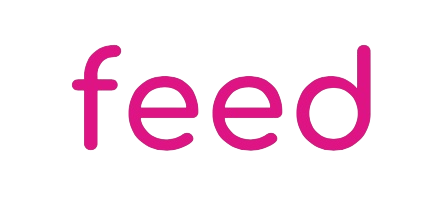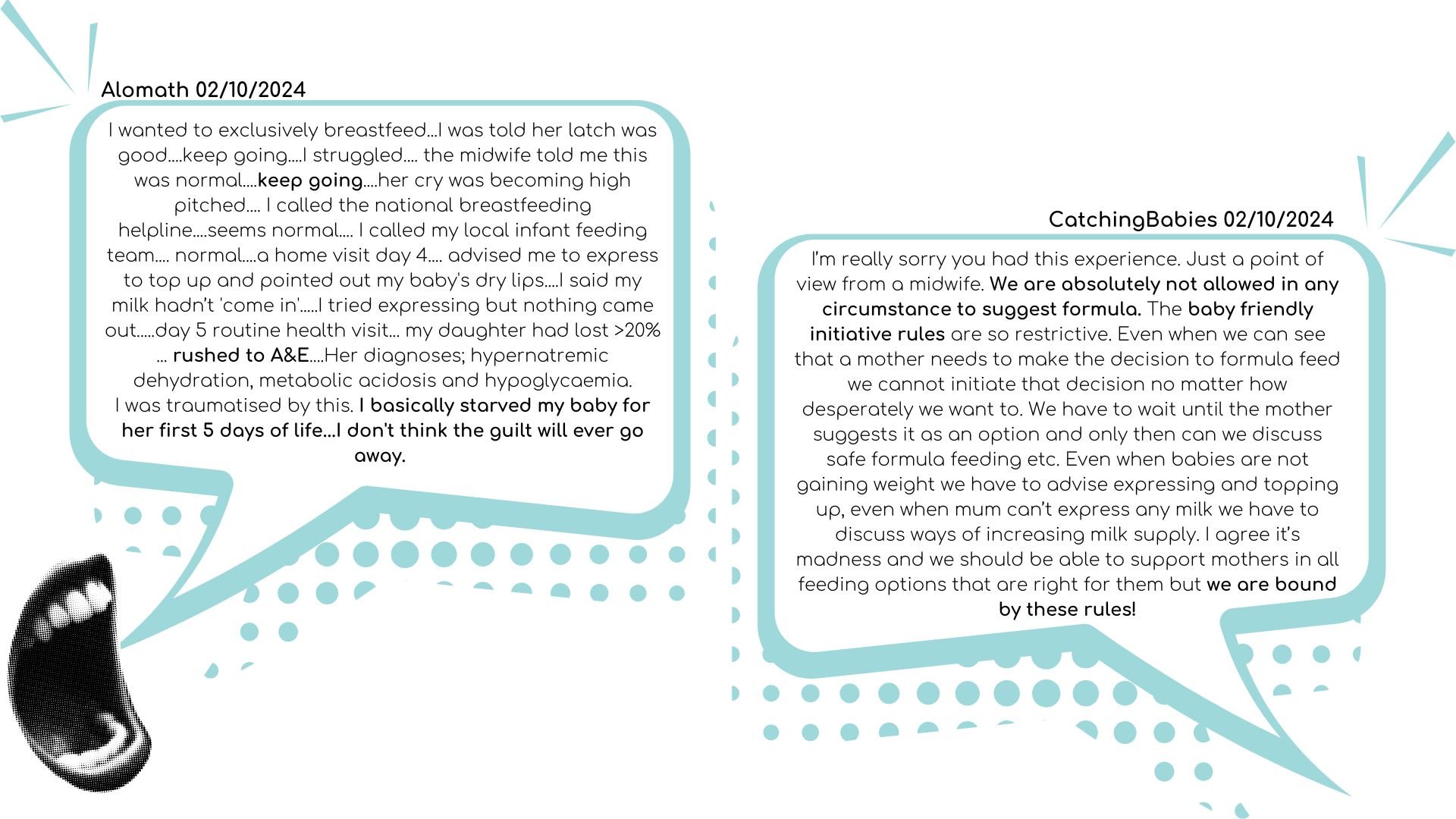The guilty mother: bringing up the F word, whose responsibility is it?
In our 2021 blog “How to be NICE: Post Natal Care NICE Guideline recommendations for infant feeding support”, we explored UK recommendations on infant feeding. Whilst the breastfeeding guidance was welcomed;
Breastfeeding support should be delivered by a competent professional, and should be available face to face until you feel you can mange without the support
We noted that the information in the guidelines on formula feeding was sparse to say the least.
NICE recommend that formula feeding practices should be discussed with families to ensure safe preparation and feeding BUT only with those who say they are considering formula feeding. In 2021 we were concerned about this, given that the vast majority of infants will be fed formula to some degree by the time they are 6-8 weeks old, and being forewarned is being forearmed, right?
To make a fully informed decision, a health care professional must provide you with all the relevant information, the good, the bad and the ugly and yet here is a national guideline advocating for an approach to withhold information from some women, if they fail to bring up a subject.
This is crazy right?! Where else in healthcare would withholding information critical to a patient’s choice stand up to scrutiny? In a world where the NHS is advocating for patient centred care and shared decision making, how can we have guidelines that recommend only divulging certain information if and ONLY if it is asked for?
Even as a one off, Alomath’s story above should be a never event and yet is it a one off? Not according to the 168 replies to her post on Mumsnet in October this year.
So if women are expected to initiate the conversation, to bring up the F word, is this something they would do? Why would women tell their health care professional they are considering using formula milk when that person is only telling them about the benefits of breastfeeding? Indeed, NICE acknowledged that women would feel reluctant to seek information for precisely this reason when it drew up the guidelines in the first place.
A recent report by the Competitions and Markets Authority looked into why infant formula milk is so expensive in the UK and the way in which the formula markets operate.
Feed submitted a response the initial CMA inquiry and a follow up response to the report. In this we stated:
The development of the infant feeding framework in the UK has taken place with professional input from health visitors, midwives and doctors as well as academics, non-government organisations and the wider third sector. The glaring omission in the policy design has to be the lack of voices of women with lived experience.
NICE recently consulted on the upcoming Maternal and Child nutrition Guidelines. In the development of this guidance they invited just two lay members onto the panel. There were no organisations representing the needs and experiences of women themselves. In an area of healthcare like no other, where women themselves are the ones expected to navigate the challenges and bear the burden (and joys) of breastfeeding, is it not incumbent on everyone to ensure their voices are front and centre?
If they had consulted more women, what might they say?
At Feed we believe that your voice matters, and that the experiences of women must be the foundations of infant feeding policies and practices in the UK. The current system is failing women and there needs to be some big shifts both within the NHS and outside it to ensure that women can make informed decisions in infant feeding, free from coercion; whether that’s the pressure from the formula industries touting their “most advanced” products, profiteering from maternal guilt, but also free from the coercion of our healthcare systems that undoubtedly have induced, exacerbated and entrenched this guilt.
Feed have a forum of parents we turn to for their experiences when responding to consultations, they are called our Feed Advocates. We recently asked our advocates about the CMA report and about the NICE guidelines and their voices formed part of our response to these consultations. If you would like to be part of the team then please check out our Feed Advocate pages and complete our application form.
Love '#TeamFeed






